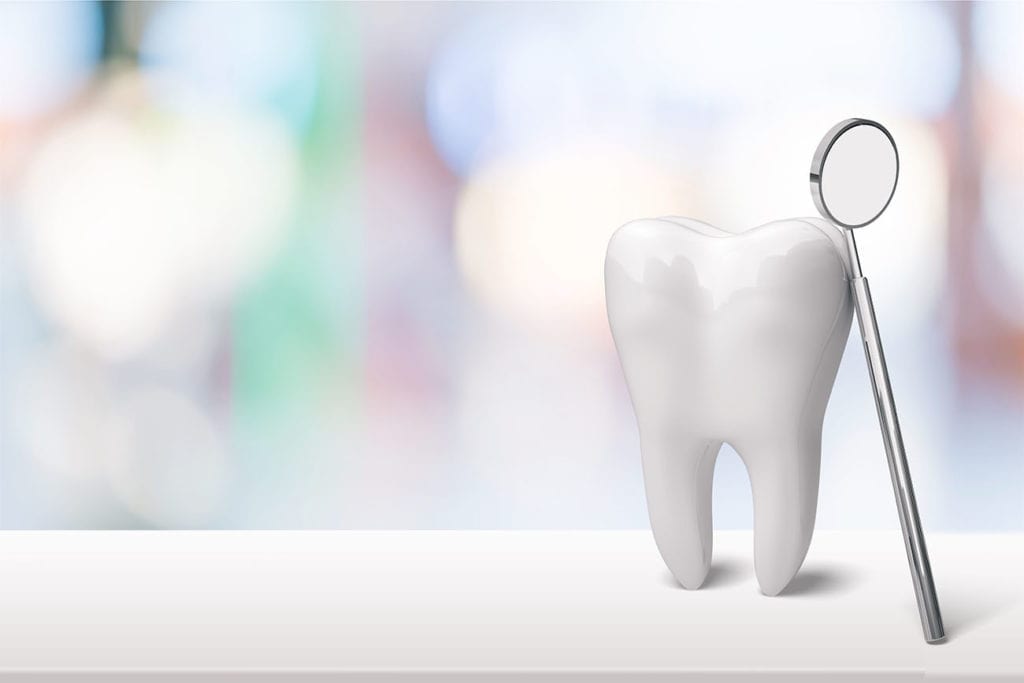Treating dental concerns as soon as possible can ensure that you do not need restorative care down the road. If you have oral health issues, you may already be at risk for further dental and overall health problems. That’s why it’s important to receive the right dental care before these problems worsen.
Our dental care team is committed to the best possible patient experience. We can help you with missing teeth, bleeding gums, failing teeth, and dental anxiety. Dr. Boenning and Dr. Dancykier are Towson, MD, prosthodontists that help our patients reach their oral health goals. They have years of experience in helping patients restore missing and damaged teeth.

Common Dental Concerns
We emphasize the importance of routine dental care in our Towson, MD, dental office. Our dental hygienists and office staff look forward to seeing patients as often as possible. We help prevent some of the most common dental problems, including:
Bleeding Gums
If your gums bleed when you brush or floss, you may have gingivitis. Gingivitis is one of the early stages of gum disease. Symptoms include gum inflammation and bleeding.
Without treatment, it can progress into periodontitis. Routine dental visits and good oral hygiene are best for gingivitis. We also provide more extensive treatment if it progresses into gum disease. We can help you stop bleeding gums from wrecking your mouth.
Dental Anxiety
A previous negative experience at the dentist can make patients nervous about complex dental procedures. Give our office a call to let us know about your dental fears before your appointment. We offer dental sedation if you require extensive treatment. Our dentists will review your treatment plan with you so you can feel comfortable in their care.
Failing Teeth
Failing teeth are decayed and damaged teeth, or missing teeth that need an extensive smile makeover. We offer various dental services to help repair teeth, remove tooth or gum infections, and restore the dental structure.
Missing Teeth
We provide dental implants, dental bridges, and full and partial dentures for patients with single missing teeth or full arches of lost teeth. Replacing missing or lost teeth helps support the health of your remaining teeth and gums. Restoring your smile also provides a more balanced bite.
Treating Your Dental Concerns
After a thorough examination, we will discuss your treatment options with you. We always take your budget, dental health, and dental history into account before recommending care. Dr. Boenning and Dr. Dancykier work with patients to build a comprehensive treatment plan for dental concerns. From gingivitis and dental fear to failing or missing teeth, whatever your needs, we can help.
We also provide dental sedation or anesthesia if you or a loved one suffer from dental fear or anxiety. We make it our mission to provide comfortable dental care in a friendly office environment. You may have some questions about common dental concerns. We will address some of them here.
When should I worry about bleeding gums?
Persistent bleeding may be a sign of an underlying problem. Especially after brushing or flossing and with symptoms like gum swelling, redness, or pain. These signs may indicate gum diseases, such as gingivitis, requiring dental evaluation and treatment.
You should schedule an appointment with our dentist to address the issue. Early intervention can help prevent further complications, including tooth loss and damage to the supporting bone. Persistent gum bleeding can also lead to anemia because of iron loss.
What will dentists do for bleeding gums?
When you visit a dentist for bleeding gums, they will first thoroughly examine your mouth, checking for signs of gum disease, plaque, and tartar. Our dentist may prescribe some medications, such as antibiotics or antiseptic mouthwash.
He may also suggest regularly adjusting your oral hygiene habits, like brushing and flossing. In more severe cases, our dentist may refer you to a periodontist for specialized treatment. The next step is scaling and root planing, or surgical intervention if necessary.
How can I overcome severe dental anxiety?
You can take steps to help you become more comfortable visiting the dentist. Firstly, inform your dentist about your dental anxiety and discuss any worries or concerns with them. Secondly, focus on relaxation techniques like deep breathing and visualizing calm images. This can help reduce stress levels when visiting the dentist.
Lastly, asking for topical anesthetics before treatment can reduce discomfort and make it easier to remain relaxed. Also, try to bring a friend or family member that will wait for you in the lobby. Avoiding the dentist can cause severe tooth problems in the future. Cavities, plaque and tarter, and gum disease will affect people that avoid the dentist.
What are the signs of a failing tooth?
One common indicator of a failing tooth is persistent untreated dental pain and sensitivity to hot and cold. Other signs of a failing tooth include swelling or tenderness in your gums, a deep tooth stain, and bad breath. If you suspect your tooth is failing, see a dentist as soon as possible. Early diagnosis can help reduce any potential damage.
How do you fix failing teeth?
To fix failing teeth, our dentists can use many different treatments. Treatments like dental fillings for cavities, root canals for infected pulp, or tooth crowns for damaged tooth structure. Our dentist may also recommend dental bonding, dental veneers, or dental implants if a tooth extraction is necessary. Regular dental check-ups with our dentist can allow us to identify any issues early on and treat them.
What should I do if I have missing teeth?
Visiting a dentist is the first step toward addressing the issue and creating a plan for your missing teeth. The most common treatments for replacing missing teeth include dental implants, bridges, and dentures. Each of these options offers its advantages.
Discuss with our dentist what option is best for you before deciding. Your oral health, budget, and preferences determine the dentist’s action plan. Replacing missing teeth can improve oral function, appearance, and your overall quality of life.
Request a Dental Exam & Consultation
Are you putting off dental treatment? Have you noticed new oral health problems? Call our dentists in Towson at 410-324-2294. You can also Schedule an appointment with our dentists on our dental website as well.
Let our staff know if you have any other questions about your long-term oral health care as we will be happy to help! We serve patients from Towson, Lutherville, Timonium, Hunt Valley and beyond.
